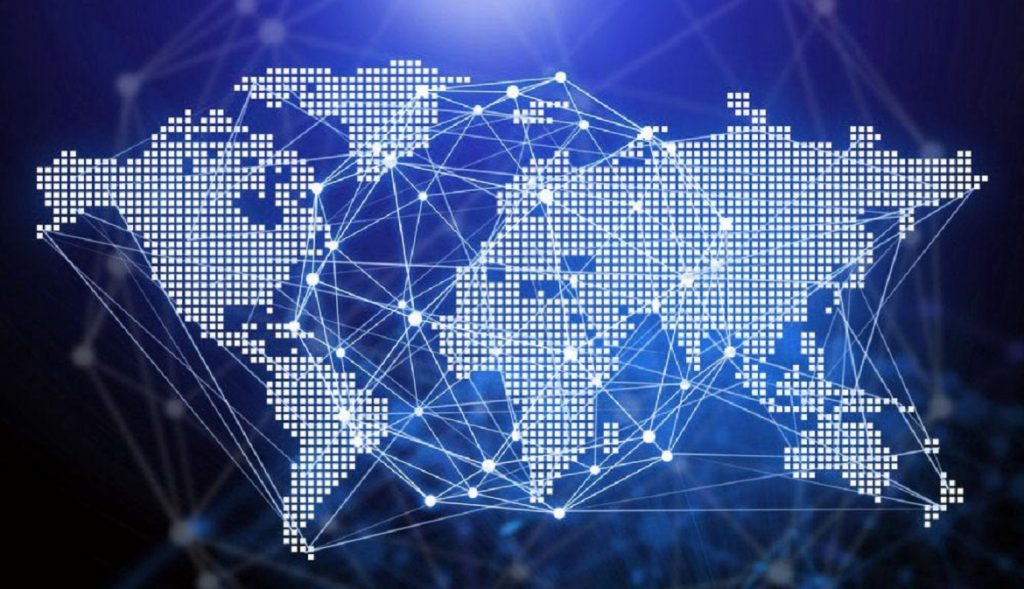By Rana Danish Nisar
The “Digital-International Relations Era” describes the current period in which digital technology has a significant impact on international relations and global events.

It demonstrates the growing significance of digital platforms, networks, and information and communication technology in the ways in which nations, governments, organizations, and individuals interact with one another. Diplomacy, security, trade, government, development, and communication are just some of the areas of international relations that are being impacted by the rise of digital technology.
Information travels faster and more data is sent, digital diplomacy is on the upswing, social media has a significant impact on public opinion and political movements, cyber warfare and cyber security worries are on the rise, and digital economics are booming. Rapid advancements in digital technologies have altered numerous facets of modern people’s life.
The concept of digital control has emerged as a topic of discussion as the number of people utilizing the internet, social media, and other digital technologies continues to rise. When a few nations, corporations, or other entities wield disproportionate influence over the global digital landscape, this is known as digital hegemony. This article aims to go into the specifics of digital hegemony by examining its salient characteristics, effects, and potential consequences for countries around the globe.
The concept of “digital hegemony” stems from the belief that dominance over digital resources and infrastructure equates to political and economic clout. Digital infrastructure, material, and access are all under the control of strong players, and have economic, political, and cultural implications. Technical progress, commercial supremacy, rules and regulations, and cultural imperialism are all viable means of establishing this hegemony.
Control of the digital realm is generally exercised by countries or corporations with state-of-the-art infrastructure, knowledge, and the ability to generate original ideas. They establish norms, create highly effective platforms, and steer the development of cutting-edge technologies. Massive volumes of user data are collected by digital hegemons, allowing them to gain insight into users’ preferences, habits, and social interactions. By having access to and shaping this information, they are better able to influence individuals, communities, and even entire societies. Hegemons in the digital space typically dominate their industries by pooling their resources and influence.
As a result of fewer competitors, these firms are typically able to manipulate prices, rules, and the structure of the market to their advantage. Hegemons in the digital realm are in a position of power to dictate what information is shared and what tales are conveyed. They can influence public opinion, gain support for particular views, and alter the way politics are discussed as a result of their position of authority. The economic disparity between some nations and regions and others can be exacerbated by digital hegemony.
When people have different levels of access to resources, it creates a gap in the digital world. As a result, economic disparities widen and it becomes even more challenging for marginalized people and countries to develop and advance. Cultural products that represent the beliefs, languages, and points of view of the dominant players tend to spread when digital hegemons are in command. This threatens diversity and cultural heritage by marginalizing native tongues and customs.
Strong groups gain enormous political power via digital hegemony due to their ability to manipulate public opinion, alter information, and alter the very nature of elections themselves. This kind of pressure can undermine democratic principles, erode confidence in public debate, and weaken political systems. When digital monopolies track their users, privacy and surveillance concerns arise.
Uninformed disclosure of sensitive personal information increases the risk of abuse and the erosion of individuals’ right to privacy. In the modern, interconnected world, digital instruments have a profound effect on nearly every facet of human existence. The effects of digital hegemony, in which a small number of powerful people govern and shape the digital world on a worldwide scale, are significant. The effects of digital power on individuals, groups, nations, and the international system are the focus of this essay.
Citizens and government agencies lose control of their data when one company dominates the digital landscape. Information technology (IT) firms and websites with significant market power now dictate the terms of data sharing, data protection, and digital infrastructure. An increased reliance on foreign digital infrastructure and resources could be the result of this monitoring, which could threaten national sovereignty. Information sharing among power players is hampered by digital hegemony. Massive digital corporations sift through mountains of data to identify patterns in consumer behavior, industry tendencies, and individual tastes.
This disparity in information can fuel unfair competition, which in turn boosts the influence of tech behemoths and hurts startups. The digital divide widens not just between countries, but also within them, as a result of digital hegemony. Technology, information, and online services may not be equally available to all people when only a few firms or governments have a lot of digital power. The inability to access digital resources can exacerbate existing social and economic disparities, especially in marginalized populations, developing countries, and among people with less money or influence.
The spread of news and other information is greatly impacted by digital management of the media. Popular digital platforms have considerable sway on the algorithms, censorship policies, and recommendation systems that determine what users see online. Filter bubbles, echo chambers, and the dissemination of misleading information or propaganda are the unintended consequences of such attempts to regulate the flow of information, and they undermine democratic processes and social cohesion. There are positive and negative outcomes for the economy that can result from digital hegemony.
Large tech firms can be beneficial because they can spark innovation, economic expansion, and employment creation. Competition is harmed, customer options are reduced, and entry barriers for new and smaller enterprises are raised by their monopolistic practices. When a select few corporations control a disproportionate share of the economy’s resources, such advantages may not trickle down to everyone. The question of digital control has emerged as a major factor in global politics. Countries and regions are making efforts to safeguard their digital sovereignty and become less reliant on established digital powers. Geopolitical tensions can occur when countries take different approaches to securing their data, essential infrastructure, and national security interests in the digital sphere. This struggle for digital supremacy has the potential to splinter the digital sphere and spur the emergence of regional digital blocs.
The United States and China are engaged in a complex struggle for worldwide technological dominance, which is discussed in US-China and Digital Hegemony and Their Struggle for Worldwide Dominance. The fight for digital supremacy is crucial in today’s interconnected, technology-driven world. This paper analyzes the results of the struggle for digital supremacy between the United States and China. The United States has been at the forefront of innovation for several decades. mainly because of its advanced technological infrastructure, abundant academic resources, and strict IP laws. Google, Apple, Microsoft, and Facebook digital products have cornered the worldwide digital market.
The United States has employed technology to improve its military, collect information, and keep tabs on the rest of the world. The economy of China’s online market is expanding. China’s huge domestic market, careful government planning, and substantial R&D investments have allowed it to catch up to and even surpass the United States in technological innovation. Huawei, Alibaba, Tencent, and Baidu are household names around the world. Some of China’s digital initiatives include “Made in China 2025” and “Digital Silk Road,” both of which have as their overarching goal making China a global leader in technological innovation.
Digital hegemony and the ongoing geopolitical tensions between the US and China. The United States is concerned about potential threats to data security, intellectual property, and cyber defense posed by China’s rapid technological development. To counteract this, the United States has implemented measures including export controls, restrictions on Chinese tech firms, and diplomatic pressure on allies to prevent the import of Chinese 5G infrastructure. However, China believes the United States is trying to quell its rise and maintain its global dominance. It has grown in self-assurance, investing heavily in futuristic technologies and exporting Chinese norms and values. To realize its vision of a digital future, the Chinese government plans to prioritize self-sufficiency, foster innovation at home, and seek foreign alliances.
The global order is profoundly affected by the struggle between the United States and China for digital dominance. The outcome will have far-reaching consequences for not only technology but also the economy, national security, and fundamental digital values. The competition could lead to the decoupling of technology supply chains, which would harm global trade and economic interdependence, and the dominance of a single power raises concerns about data security, surveillance, and privacy, just to name a few of the risks and challenges that come with it.
The struggle for digital supremacy between the United States and China is a major factor in international relations. Both nations are interested in directing the development of the standards and infrastructure that will govern the future of the Internet. This has far-reaching implications for international trade, safety, and governance. Legislators, researchers, and other stakeholders worldwide must keep an eye on and address the issues that arise as a result of this rivalry if they hope to foster a collaborative, inclusive, and ethical digital ecosystem. The rise of digital hegemony is a phenomenon with many facets that is altering the world as we know it. While technology may open up new avenues for discovery and communication, it also poses significant challenges and threats to communities worldwide. A digital ecosystem that is inclusive, accessible, secure, and respectful of cultural diversity is essential as the globe continues to grow increasingly interconnected. We need international cooperation, cooperation with other countries, and robust regulatory institutions to address the issues brought on by digital hegemony. This will guarantee a digital age where everyone is treated fairly.
Author: Rana Danish Nisar – The author holds high academic credentials in the field of international relations. He has deep expertise in security, defense and military studies.
(The views expressed in this article belong only to the author and do not necessarily reflect the views of World Geostrategic Insights)







